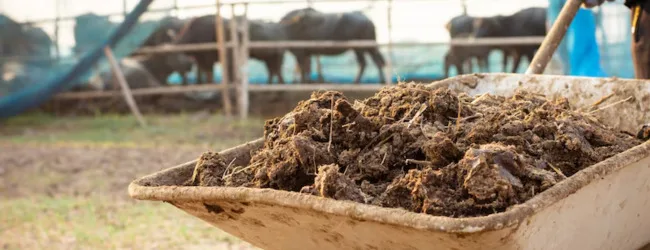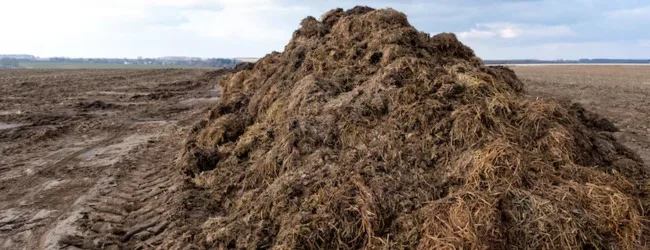Table of contents
Organic farming is gaining momentum in India, and manure production is one of the most effective, affordable, and sustainable ways small farmers can enrich their soil without using harmful chemicals. Whether you have just one acre or ten, producing your own manure can improve crop yields, reduce farming costs, and protect the environment.
What is Organic Manure?

Organic manure is a natural fertiliser derived from animal waste, crop residues, green leaves, and biodegradable household waste. Unlike chemical fertilisers, it improves soil health over time by adding organic matter and nutrients.
Benefits of Organic Manure for Small Farmers
| Benefit | Explanation |
|---|---|
| Low-cost fertilizer | Made using farm waste, reducing dependency on costly chemical fertilizers. |
| Improves soil health | Increases soil organic matter, structure, and moisture retention. |
| Eco-friendly | 100% biodegradable and safe for the environment. |
| Boosts productivity | Enhances microbial activity in soil, leading to higher crop yields. |
| Reduces waste | Converts farm and kitchen waste into useful manure. |
Step-by-Step Process of Organic Manure Production
Here is a simple guide to producing high-quality manure at your farm:
Step 1: Choose the Type of Manure
You can make different types of organic manure depending on the materials available:
- Farmyard Manure (FYM): Made from cow dung, urine, and bedding straw.
- Compost: Decomposed crop waste, kitchen scraps, leaves.
- Vermicompost: Compost made using earthworms (high in nutrients).
- Green Manure: Grown crops like dhaincha, sun hemp, that are ploughed back into the soil.
👉 Tip: For small farms, vermicompost is highly recommended due to its rich nutrient content and fast decomposition.
Step 2: Gather Raw Materials
| Material | Purpose |
|---|---|
| Cow dung | Nitrogen-rich component |
| Dry leaves/crop waste | Carbon source |
| Soil | Contains decomposer microbes |
| Water | Keeps the compost moist |
| Earthworms (for vermicomposting) | Speed up decomposition |
💡 Pro Tip: If you want to start a Business but have too many doubts, connect with a Business expert from Boss Wallah for guidance – Check Out
Step 3: Select the Composting Site
- Choose a shaded area away from direct sunlight and waterlogging.
- The ground should be slightly raised to avoid rainwater accumulation.
Step 4: Layering the Compost Pit or Bin
Follow this layering method:
- First layer – dry leaves/crop waste.
- Second layer – cow dung slurry.
- Third layer – soil.
- Repeat the layers.
📝 For vermicomposting: Add earthworms after 10-15 days of partial decomposition.
ALSO READ | Why are Manure and Fertilisers Used in Fields?
Step 5: Maintain the Compost
- Moisture Level: Keep the pile damp (like a squeezed sponge).
- Turn the pile: Every 10-15 days to allow air circulation.
- Avoid: Plastic, glass, meat, and oily items.
Step 6: Maturation and Harvesting
- Compost matures in 45 to 60 days.
- Finished manure will be dark brown, crumbly, and earthy-smelling.
- Sieve the compost if needed and store it in dry, covered bins.
Cost of Setting Up a Small Manure Production Unit
| Expense | Estimated Cost (INR) |
|---|---|
| Compost bin/pit | ₹1,000 – ₹5,000 |
| Earthworms (1kg) | ₹300 – ₹500 |
| Water supply system | ₹500 – ₹1,500 |
| Tools (spade, sieve) | ₹300 – ₹700 |
| Labor (if outsourced) | ₹2,000/month (optional) |
Total Initial Investment: ₹2,000 – ₹8,000
Profit Potential
- 1 ton of vermicompost sells at ₹5,000 to ₹7,000.
- A small unit can produce 4-5 tons annually, earning up to ₹25,000 – ₹35,000/year.
- You can also save on chemical fertilisers (₹10,000+ per acre/year).
✅ Noteworthy: Selling surplus compost locally can become an additional income source.
ALSO READ | What are Agro-Based Industries? Definition, Characteristics & Functions (2025)
Best Practices for Manure Production

- Use fresh and disease-free cow dung.
- Keep the compost aerated and moist.
- Avoid overwatering—it slows decomposition.
- Test the compost before application using simple soil kits.
Government Support & Subsidies
- National Horticulture Mission (NHM) and RKVY offer subsidies for compost units.
- NABARD also provides loans at low interest rates for organic input production.
- Visit https://agricoop.nic.in for schemes.
Need Expert Guidance?
Starting a business can be challenging, but you don’t have to do it alone! At Boss Wallah, our 2,000+ business experts are ready to provide valuable insights and guidance. Whether you need help with marketing, finance, sourcing, or any other area of any business, our business experts are here to help you succeed
Confused about Which Business to Start?
Want to start your own business but unsure which one to choose? Explore Boss Wallah, where you’ll find 500+ courses by successful business owners, featuring practical, step-by-step guides on starting and growing various businesses.
Find your perfect business idea today
Conclusion
Manure production is not just a sustainable choice—it’s a smart business move for small farmers in India. By turning farm waste into organic gold, you can reduce input costs, improve soil fertility, and even earn an extra income. With the growing demand for chemical-free food, adopting this method today will prepare you for a more profitable tomorrow.
Frequently Asked Questions (FAQs)
Vermicompost is often the best due to its rich nutrient profile and fast decomposition.
Usually 45 to 60 days, depending on the method and weather conditions.
Yes, use vegetable peels, tea leaves, eggshells—but avoid oily or non-biodegradable waste
No. Natural decomposition and earthworms are enough. Some use cow urine as a booster.
Maintain proper moisture and turn it regularly to avoid anaerobic decomposition.
Yes, with proper packaging and licenses, especially in local agri-markets or online.
A 6x4x3 feet pit is sufficient to start with.
Yes. NHM, NABARD, and other schemes offer financial assistance for manure production.
Absolutely! Even terrace gardeners are producing compost using small bins.
Yes, but ensure proper covering to avoid excess water and rotting.



